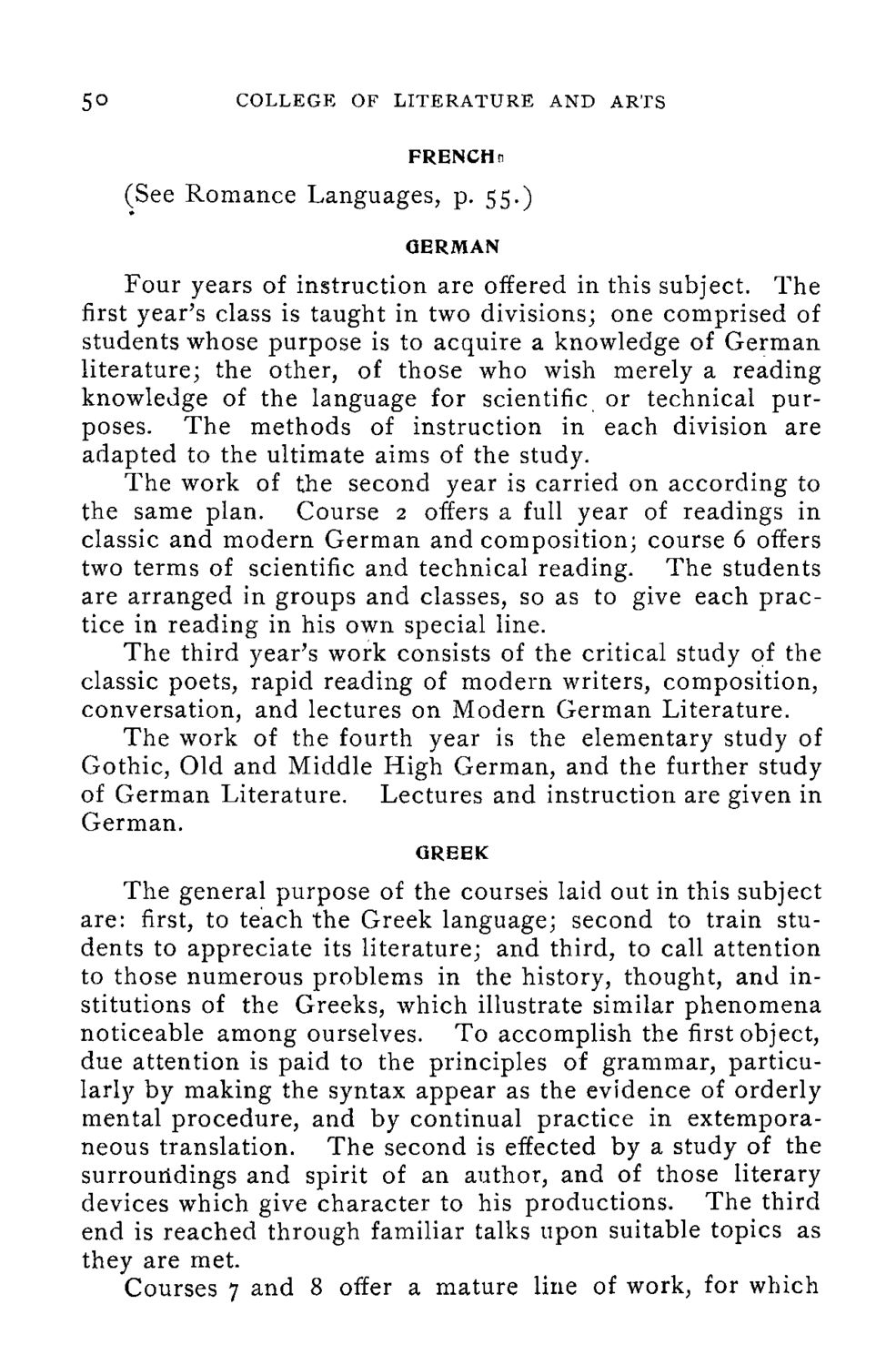| |
| |
Caption: Course Catalog - 1896-1897
This is a reduced-resolution page image for fast online browsing.

EXTRACTED TEXT FROM PAGE:
SO COLLEGE OF LITERATURE AND ARTS FRENCHn (See Romance Languages, p. 55.) GERMAN Four years of instruction are offered in this subject. The first year's class is taught in two divisions; one comprised of students whose purpose is to acquire a knowledge of German literature; the other, of those who wish merely a reading knowledge of the language for scientific or technical purposes. The methods of instruction in each division are adapted to the ultimate aims of the study. The work of the second year is carried on according to the same plan. Course 2 offers a full year of readings in classic and modern German and composition; course 6 offers two terms of scientific and technical reading. The students are arranged in groups and classes, so as to give each practice in reading in his own special line. The third year's work consists of the critical study of the classic poets, rapid reading of modern writers, composition, conversation, and lectures on Modern German Literature. The work of the fourth year is the elementary study of Gothic, Old and Middle High German, and the further study of German Literature. Lectures and instruction are given in German. GREEK The general purpose of the courses laid out in this subject are: first, to teach the Greek language; second to train students to appreciate its literature; and third, to call attention to those numerous problems in the history, thought, and institutions of the Greeks, which illustrate similar phenomena noticeable among ourselves. To accomplish the first object, due attention is paid to the principles of grammar, particularly by making the syntax appear as the evidence of orderly mental procedure, and by continual practice in extemporaneous translation. The second is effected by a study of the surroundings and spirit of an author, and of those literary devices which give character to his productions. The third end is reached through familiar talks upon suitable topics as they are met. Courses 7 and 8 offer a mature line of work, for which
| |